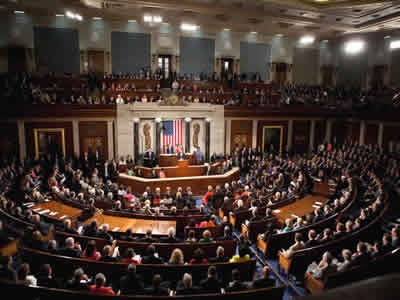Online gambling has grown into a mega billion-dollar industry in the United States, as licensed gaming companies in the states and around the globe have seen the opportunity to profit through the Internet. Now, it appears that the current Republican Congress will be putting the sin police into action with the proposal of the Restoration of America’s Wire Act, proposed last year by Rep. Jason Chaffetz (R-UT) and resubmitted this year. Once again, it is Big Brother to the rescue to save us from our immoral selves. At least, that is the advanced false social meme.
That “wire act” the Republicans want to restore is the Wire Act of 1961 that was actually passed during the first wave of Kennedy Administration policy implementations. The policy enactment was a general federal sovereignty claim to oversight of the telephone and telegraph communication systems by outlawing communications involving sports betting and money transfers by organized criminals. The impact that this legislation has on the Internet has never been clear, as the digital world is not exactly a wired system. The “last mile” delivery of the service for access is wired, but not the information per se.
Because of the distance normally involved in online communication, the legalities of betting in the days of broadband infancy were vague. Currently bets cannot be placed from a state that does not allow legalized gambling. It is not necessary to be a resident of the state, but location in the state is a requirement. This law will primarily stop that activity, even though gambling is legal within the particular state. It is a safe bet that lawsuits will fly in the three states that allow legal online gambling, particularly since it was just a few years ago that the DOJ offered clarification to the Federal Wire Act, indicating that it only applied to sports betting and that each individual state could determine their own fate regarding other online gambling venues.
While the policy does have an impact on local levels, it is primarily aimed at stopping international gaming that is problematic when policing because of international location jurisdiction. And, even though the legislation appears as a moral and sage Big Brother legal action, a closer investigation shows that there is also a major campaign fund angel sitting in the background who will reap the benefits of this legislation in the state of Nevada. That individual is none other than campaign contribution superstar Sheldon Adelson, CEO at the Las Vegas Sands.
Adelson actually requested the legislation, according to some insiders. Adelson is well-known as the largest campaign fund contributor within the Republican Party and is closely associated with AIPAC, which is the most influential lobbyist watchdog in Washington. Both Adelson and AIPAC have made major contributions to both Graham and Goodlatte, as well as Chaffetz. In addition, Adelson recently held a preliminary primary speaking engagement at the Sands for each current potential Republican presidential candidate, including Jeb Bush.
As a proponent of the legislation, the Las Vegas Sands does not participate in online gambling. However, their primary competition does operate an online gaming network within Nevada and MGM controls that particular market. MGM Resorts offers a legal online gambling site where the participants win points that can be claimed at MGM Resort brick-and-mortar casino locations. This legislation would stop that practice, even it is bought by Adelson’s influence.
Of course, hypocrisy is never a problem for the GOP if the hypocrisy betters their interests. Just last week the GOP was ridiculing the Federal Communications Commission for placing the internet service providers in the United States under the agency legal umbrella of Title II public utilities. The Internet is actually an information highway that was built and funded totally by tax receipts.
By every definition available, the U.S. FCC determined the Internet is a public good, and not a device for a very few corporations to control via content priority. Adelson is also known as a major investor in the cable industry that wants less oversight and more control of their own low-competition industries, including the information itself.

